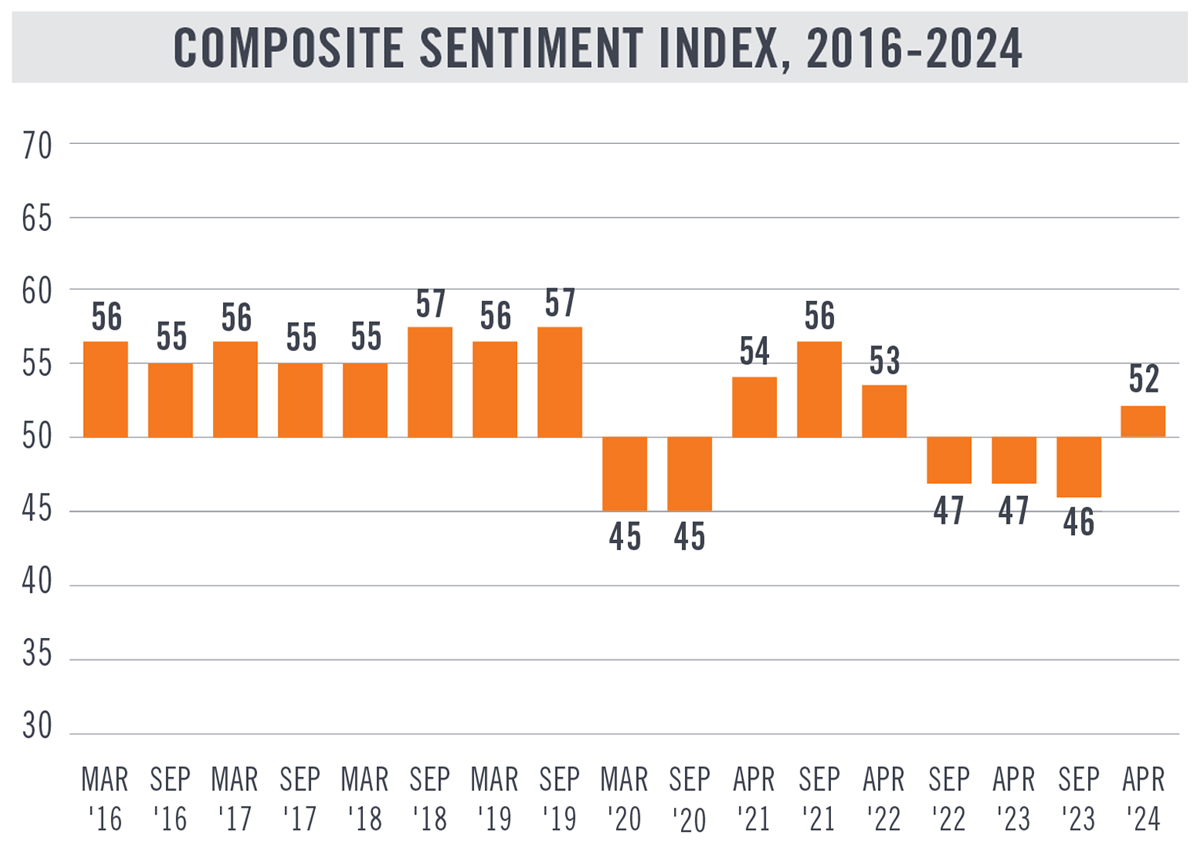Economy Watch – Consumers a Little Less Fidgety
Consumers less pessimistic, but Case-Shiller indices show home prices down in 16 of the 20 major markets covered. Also, consolidation may be a wave of the CRE future.
January 26, 2009
By Dees Stribling, Contributing Editor
Happy days are here again? That would be too much to ask. But according to the New York-based Conference Board, less pessimistic days are here again for consumers.
On top of an increase in December, the Conference Board Consumer Confidence Index improved further in January. The index rose from 53.6 during the last month of 2009 to 55.9 during the first month of 2010. One way to look at that is the not-out-of-the-woods paradigm.
“Regarding their financial situation, while consumers were less dire about their income prospects than in December, the number of pessimists continues to outnumber the optimists,” posited Conference Board Consumer Research Center director Lynn Franco in a statement.
Still, the number of optimists is rising. And it’s the optimists who are more likely to go out and buy just a little more than before, thus creating a cascade of activity that slowly improves the economy, and further encourages consumers. Someday, even parts of the economy that have been in the doldrums all too long, such as retail and retail real estate, might benefit from this positive psychology.
Case-Shiller Not All That Optimistic
After a number of months tracking gains, the S&P/Case-Shiller Home Price Indices for November 2009 tracked a loss when compared with October, with the Composite 20 index down 0.2 percent. Compared with November 2008, the Composite 20 was down 5.3 percent.
Home prices were down in 16 of the 20 major metro markets that the Composite 20 covers, but there were a few places where prices were up. Most of areas that registered a gain were metro areas that had witnessed some of the steepest declines previously: Los Angeles (0.8 percent up), Phoenix (1.1 percent up), San Diego (0.4 percent up) and San Francisco (0.6 percent). None of these metro areas had seen any increases in the last six months.
On average, according to the long-term trend lines of the Composite 20, if you’d bought a house in late 2003, you’d be roughly back to where you started now.
CRE Wave of Consolidation?
During flush economic times, corporations have a way of buying each other up and calling it a “strategic alliance” or claiming that “it benefits the consumer,” when mostly board-room egos have driven the deal. But when times are very hard, mergers can mean something quite different–a survival strategy, or a way to prepare for a recovery.
Will commercial real estate see consolidations as it slowly climbs its way out of the tar pit of the Great Recession? “There will be consolidation going forward, among property management, brokerage, developers and others,” Dennis Yeskey, a senior advisor at New York-based AlixPartners L.L.P., told CPE “There’s been some consolidation recently, but not a lot yet. But as things play out, there will be more, because that’s what happens on on the way back up.”
Some mergers have already happened, making them possible harbingers of things to come. One was the mid-January inking of a deal to create Cassidy Turley, a melding of Colliers Turley Martin Tucker; Colliers Houston & Co.; Cassidy Pinkard Colliers; Colliers Pinkard; Colliers ABR; BT Commercial; BRE Commercial; and BRE Commercial. The new entity, which will have 57 offices and about 2,700 employees, will come into being on March 1. Also, Colliers International and FirstService Real Estate Advisors are hopping into each others’ arms.
Wall Street gained ground most of the day on Tuesday, but ran out of steam toward the end of the day, ending up little changed. The Dow Jones Industrial Average lost a scant 2.57 points, or 0.03 percent, while the S&P 500 was down 0.42 percent and the Nasdaq fell 0.32 percent.






